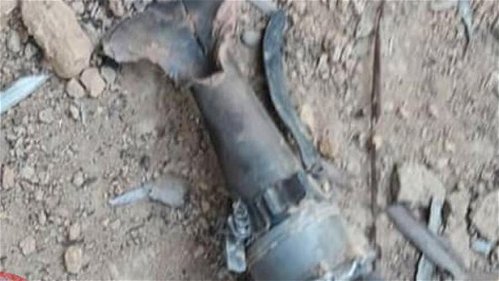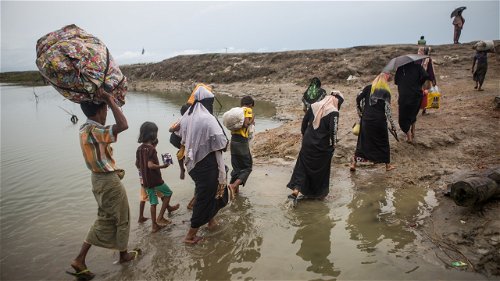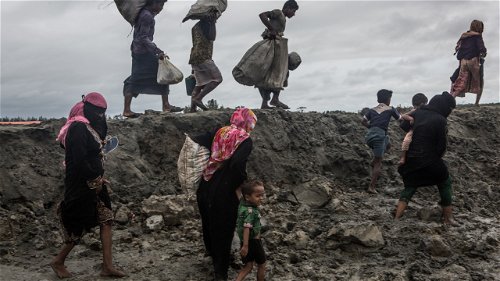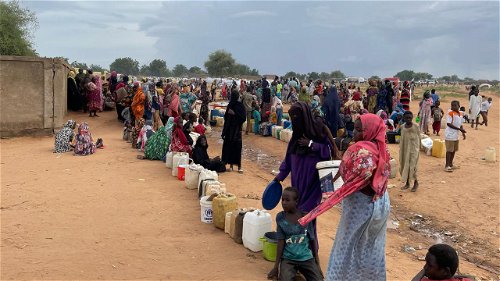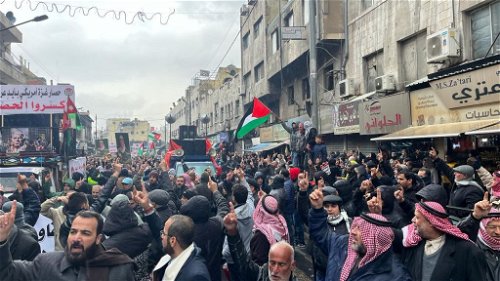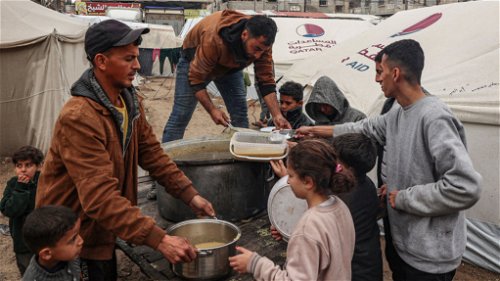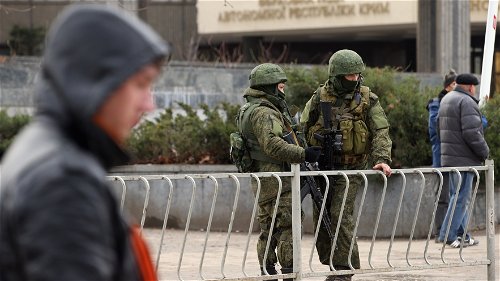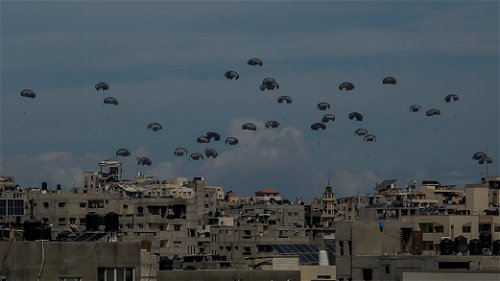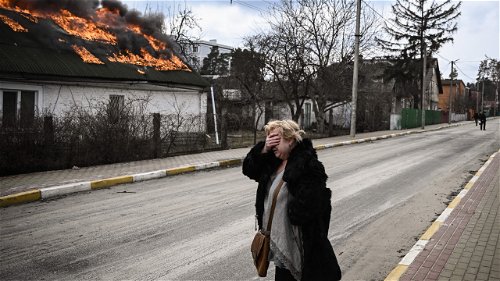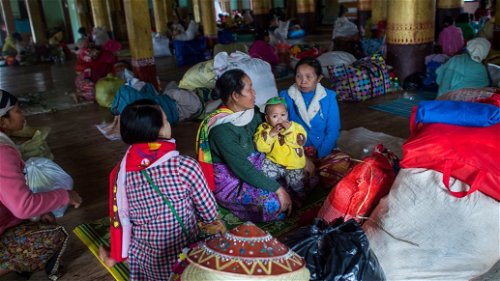
Gruweldaden Myanmarees leger in Shan State zijn ‘hardvochtig en genadeloos’
Amnesty International heeft nieuwe bewijzen verzameld die aantonen dat het leger van Myanmar in het noorden van het land gruweldaden pleegt tegen etnische minderheden. Burgers zijn opnieuw de dupe van gevechten tussen het leger en verschillende gewapende groepen. Het geweld lijkt voorlopig niet af te nemen en doet vrezen voor bijkomende schendingen.
Een nieuw rapport “Caught in the middle”: Abuses against civilians amid conflict in Myanmar’s northern Shan State beschrijft hoe burgers arbitrair gearresteerd, opgesloten en gefolterd worden door het leger. Het legt ook de gewelddadige tactieken bloot die etnische gewapende groepen hanteren in hun strijd tegen het leger en tegen elkaar.
“De Myanmarese troepen gaan nog steeds hardvochtig en genadeloos te werk en plegen straffeloos oorlogsmisdaden”, zegt Nicholas Bequelin, Amnesty’s directeur voor Oost- en Zuidoost-Azië. “Soldaten en bevelhebbers onderwerpen burgers aan brutaliteiten zonder ook maar enige verantwoording te moeten afleggen.”
In zijn nieuw rapport documenteert Amnesty International oorlogsmisdaden en andere militaire inbreuken tegen burgers van de etnische groepen Kachin, Lisu, Shan en Ta’ang. De mensenrechtenorganisatie verzamelde de nodige bewijzen tijdens twee veldonderzoeken in de regio in maart en augustus 2019.
Burgers waarmee Amnesty International gesproken heeft, verwezen herhaaldelijk naar de 99e Lichte Infanterie Divisie (LID) als pleger van veelvuldige misdaden. Eenheden van de 99e LID zijn sinds augustus 2017 ook betrokken bij een aantal van de ernstigste gruweldaden tegen de Rohingya in Rakhine State, alsook bij oorlogsmisdaden en andere zware schendingen die gepleegd werden in het noorden van Myanmar in 2016 en begin 2017.
“Op plaatsen waar de 99e Lichte Infanterie Divisie opereert, zien we telkens he
tzelfde patroon van vreselijke misdaden terugkeren. De internationale gemeenschap moet hoogdringend het Myanmarees leger, niet in het minst de topgeneraals, ter verantwoording roepen.”
De schendingen blijven steeds doorgaan, zelfs nadat het leger in december 2018 een unilateraal staakt-het-vuren, dat intussen verstreken is, afkondigde. Een recente escalatie van gevechten in de regio – die de overheid linkt aan illegale drugstrafiek maar de etnische groepen aan voortdurende militaire offensieven – brengt weer nieuwe meldingen van inbreuken met zich mee. Intussen lijkt het vredesproces voorlopig vast te zitten nu alle actoren zich opmaken voor algemene verkiezingen in 2020.
Meer informatie over de bevindingen van Amnesty’s onderzoeksmissie in het noorden van Myanmar vindt u hieronder in het internationale persbericht:
Familiar patterns of military violations
Myanmar soldiers have committed serious violations of international human rights and humanitarian law in the last year, particularly in the northernmost townships of Shan State. These have continued even after the military’s announcement of a unilateral ceasefire in the area on 21 December 2018.
Soldiers have detained civilians – overwhelmingly men and boys – often torturing or subjecting them to other forms of ill-treatment. Most were accused of having links to specific armed groups based solely on their ethnicity, a sign of the climate of suspicion, discrimination and arbitrary punishment that Kachin, Shan, Ta’ang and other ethnic minority communities face at the hands of the Myanmar military. The military has also fired indiscriminately in civilian areas, killing and injuring civilians and damaging homes and other property.
On 11 March 2019, soldiers from the 99th LID detained and tortured two ethnic Kachin villagers in Kutkai Township. While the men were away fishing, fighting broke out between the military and the Kachin Independence Army (KIA). One of the men, 35, recalled what happened when they encountered the group of soldiers:
“[A soldier asked] ‘Are you KIA?’ I said ‘no’, then they started punching and kicking me. They forced me to take off my clothes [and] held a knife to my neck… Then they forced me to squat with my fingers on my knees… They told me if I moved they would cut off my fingers… They put a grenade in my mouth… I was afraid if I moved it would explode.”
In some cases, detainees were taken to military bases where they were held incommunicado for up to three months and denied access to family and lawyers. In one case documented by Amnesty International, an 18-year-old man and a 14-year-old boy were subjected to forced labour, including digging trenches, while being held at a military base in the town of Kutkai.
Before being taken to the base the 18-year-old was beaten, then tortured further. He said: “They asked if I was a [KIA] soldier… I kept saying no, then they put a plastic bag over my head [and] tied it tight by holding it in the back. They were asking me if I knew any soldiers from the village. They did it six or seven times, each time for two or three minutes. I couldn’t breathe.”
Ethnic armed groups also committing abuses
Civilians are increasingly caught between ethnic armed groups who abduct, detain and sometimes torture men and boys, often accusing them of supporting a rival armed group. Amnesty International documented such abuses by the Kachin Independence Army (KIA), the Shan State Army-North (SSA-N), the Shan State Army-South (SSA-S), and the Ta’ang National Liberation Army (TNLA).
Armed groups have also subjected civilians to forced labour. Amnesty International documented several instances when civilians were forced to work as porters, carry fighters’ belongings and guide them to other villages during active combat, putting their lives at risk. Civilians also told Amnesty International that armed groups regularly extort food and money from them, threatening anyone who refuses with physical violence.
“Armed groups are responsible for heinous abuses against civilians, including abductions, forced labour and beatings. We are calling on all sides to stop targeting civilians, and to take all possible measures to keep fighting away from populated areas,” said Nicholas Bequelin.
Civilians paying the price
Thousands have been forced to flee their homes in the last year as the fighting moves closer to villages. Many people have been displaced multiple times. One women told Amnesty International she had fled her home four times in March 2019 alone.
Villagers often flee to makeshift displacement sites such as churches and monasteries, where they stay until the fighting moves to a different area. These short-term displacements can make it difficult for humanitarian workers to access people in need, made worse by government and military restrictions on humanitarian access.
Even those who flee are not safe, with an alarming increase since 2018 in the number of civilians killed or injured by landmines or improvised explosive devices.
Amnesty International is calling on all sides to respect international humanitarian and human rights law, protect civilians, and ensure humanitarian access. Armed groups must end acts of violence and intimidation against civilians and take all feasible measures to avoid civilian-populated areas.
“Those responsible for war crimes should face justice, all the way up to Senior General Min Aung Hlaing, the Myanmar military’s Commander-in-Chief,” said Nicholas Bequelin. “Fighters and commanders in ethnic armed groups should also be investigated and held accountable for war crimes.”
“For too long the UN Security Council has stood by as civilians were abandoned to a ceaseless cycle of violence. It is time for the Council to stop dragging its feet and refer the situation in Myanmar to the International Criminal Court.”
